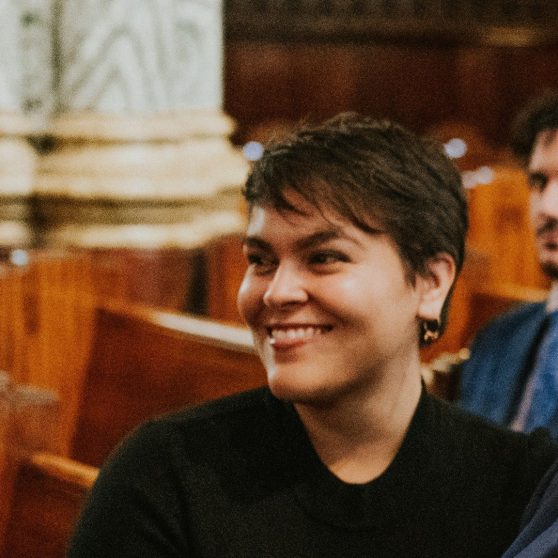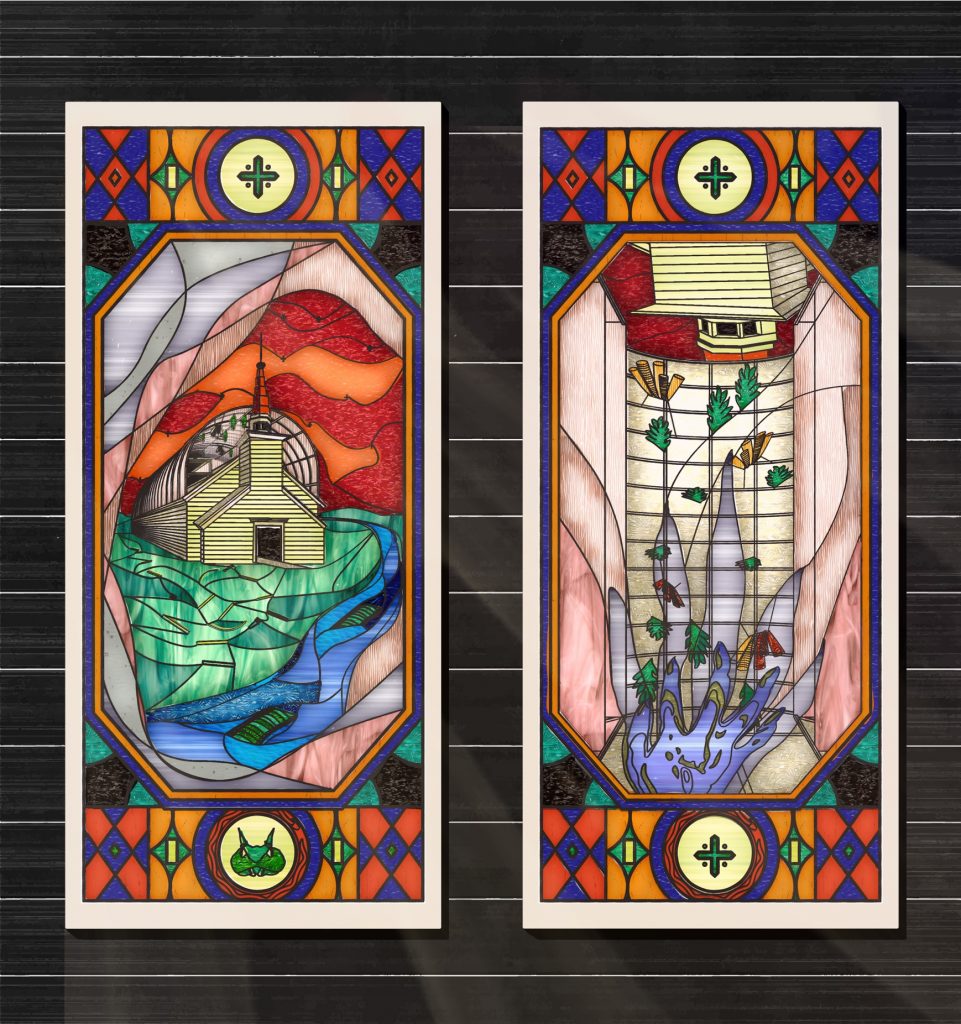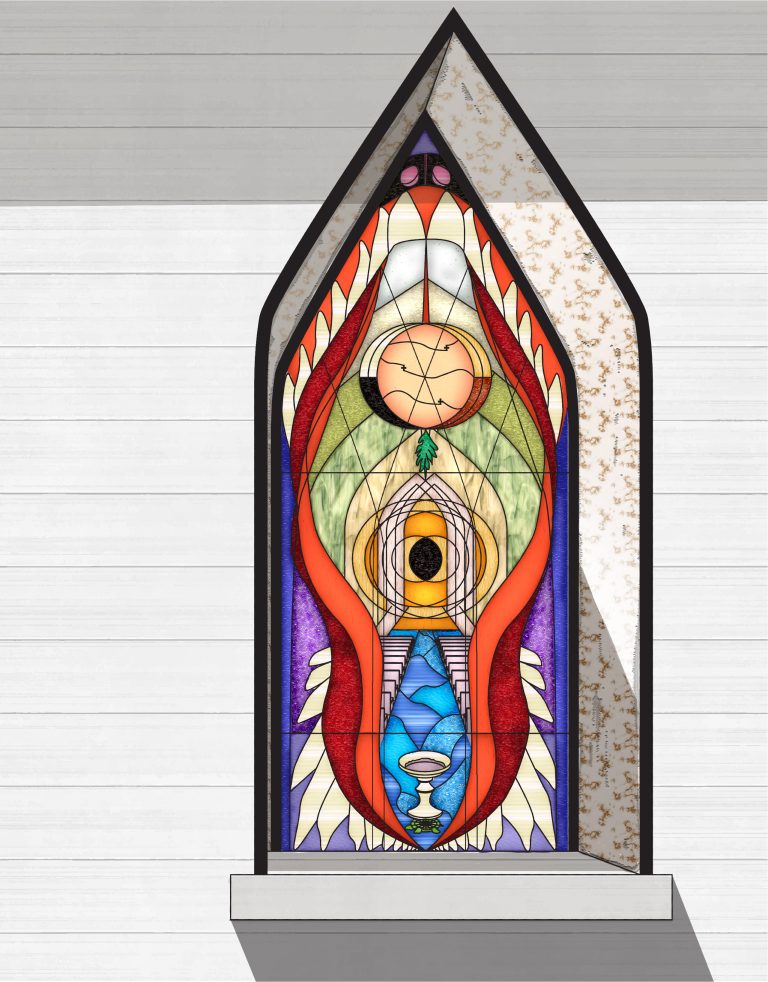Canadian Centre for Architecture selects Azrieli student for workshop on Indigenous-led design in the Arctic
December 15, 2021
Master of Architecture student Andrea McIntosh is one of nine students and emerging practitioners selected by the Canadian Centre for Architecture (CCA) for a workshop exploring the future of Indigenous-led design in the circumpolar North.
The six-month program, Futurecasting: Indigenous-led Architecture and Design in the Arctic, includes seminars, a trip to Norway, and an exhibit at the CCA showcasing the work produced by participants.
“This project presents something rare — an opportunity for Indigenous practitioners and students to learn from and work with each other,” says McIntosh, who is Cree of Fisher River Cree First Nation and French Canadian.
“I have never participated in a pan-Indigenous architectural workshop, nor have I spent much time with other Indigenous architecture students,” she says. “We need to see each other and to be with each other, talk to one another, and explore and research together what it means to design for our communities and our future.”

Master of Architecture student Andrea McIntosh
In January and February 2022, Mcintosh will attend a series of online seminars and discussions led by Indigenous mentors, architects, designers, and knowledge keepers. Participants will sketch or model ideas and collect Indigenous design work and inspiring references. The goal of the online sessions is to introduce members while collaborating on exploratory research.
“I am excited to be part of the seminars and discussions,” says McIntosh. “I’m curious about how they will shape my perspectives about Indigeneity and design.”
Fellow participants are from the University of Manitoba, University of British Columbia, Sámi University of Applied Sciences (Norway), Oulu School of Architecture (Finland), Norwegian University of Science and Technology, and University of Gothenburg (Sweden).
In spring 2022, the group will travel to Kautokeino, Norway, for a week-long workshop in Sápmi territory to learn about the traditional territory and building practices of the Sámi people. Here, students will create speculative design projects while being out on the land.
“Learning about Northern Indigenous regions beyond North American borders is essential to the development of Arctic and cold-climate design,” says the CCA.
The final phase of the project involves a trip to the CCA in Montreal, where each participant will complete and present their research work for the June 7 opening of the exhibit ᐊᖏᕐᕋᒧᑦ/Rovttu guvli /Towards Home.
The show, which runs until February 12, 2023, “explores how Inuit, Sámi, and other communities across the Arctic are creating self-determined spaces,” says the CCA. ”The project examines and celebrates practices of designing and building on the land that empower Indigenous communities.”
In her final year of the three-year Master of Architecture program at the Azrieli School, McIntosh is working on her thesis titled Psychedelic Architecture: set and settings for altered states of consciousness.
“I am researching psychedelic-assisted therapy (PAT) health care spaces and their role in the treatment of mental health disorders,” she explains.
“I’m interested in how we will establish design considerations for future PAT centres and how we can learn from non-medical contexts and Indigenous psychedelic communities about how to create ‘health generating’ spaces and practices.”


Transformation – Cathedral windows tell the myth of two typologies becoming one. These works by Andrea McIntosh were a culmination of the investigations of cultural amalgamation, diffusion and storytelling.
McIntosh entered the architecture program after completing a Bachelor of Science in neuroscience and mental health from Carleton University.
“At the core, my thesis is about how we interact with space and how those interactions and perceptions influence our ability to heal” she says. “I am deeply invested in learning more about this connection between place and health, displacement (emotional/physical), and trauma.”
“I think there is so much to be gained from Indigenous perspectives about health,” she adds. “We are intimately connected to what exists beyond the body, to our relationships with others, with our environment, and to the unknown.”
McIntosh applied to be part of Futurecasting: Indigenous-led Architecture and Design in the Arctic after the CCA issued an open call to Indigenous design students and emerging practitioners across Turtle Island, Sápmi, and Inuit Nunangat.
“I congratulate Andrea Mcintosh on her placement in this important CCA exhibition and initiative related to Arctic Indigenous design,” says Dr. Federica Goffi, interim director of the Azrieli School.
“This provides Andrea with the remarkable opportunity to participate with a group of students and artists in a series of seminars, discussions, and an exhibition, and I look forward to learning about this work and experience as it develops.”
Futurecasting: Indigenous-led Architecture and Design in the Arctic workshop participants:
– Robyn Adams, University of British Columbia
– Brit Kristine Andersen Guvsám, Sámi University of Applied Sciences
– Jenni Hakovirta, Oulu School of Architecture
– Johanna Grete, Norwegian University of Science and Technology
– Laila Susanna Kuhmunen, Sámi University of Applied Sciences
– Andrea McIntosh, Carleton University
– Reanna Merastry, University of Manitoba
– Naomi Ratte, University of Manitoba
– Magnus Antaris Tuolja, University of Gothenburg